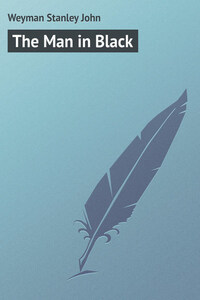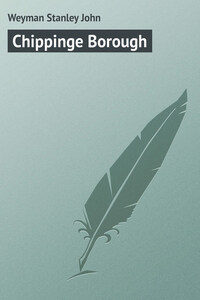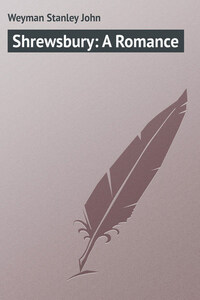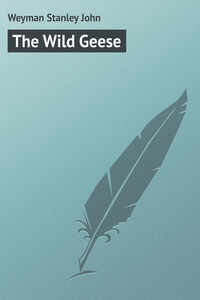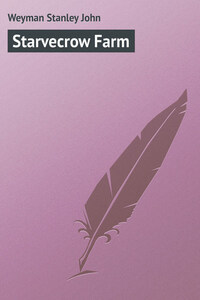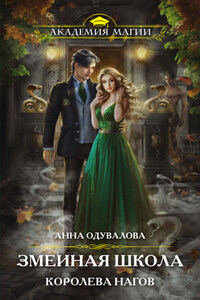It was market day at Aldersbury, the old county town of Aldshire, and the busiest hour of the day. The clock of St. Juliana's was on the point of striking three, and the streets below it were thronged. The gentry, indeed, were beginning to take themselves homeward; a carriage and four, with postillions in yellow jackets, awaited its letters before the Post Office, and near at hand a red-wheeled tandem-cart, the horses tossing their small, keen heads, hung on the movements of its master, who was gossipping on the steps of Ovington's Bank, on Bride Hill. But only the vans bound to the more distant valleys had yet started on their lagging journey; the farmers' gigs, the hucksters' carts, the pack-asses still lingered, filling the streets with a chattering, moving multitude. White-coated yeomen and their wives jostled their betters-but with humble apologies-in the low-browed shops, or hardily pushed smocked-frocks from the narrow pavements, or clung together in obstinate groups in the roadway. Loud was the babel about the yards of the inns, loudest where the taprooms poured forth those who, having dined well, had also drunk deep, after the fashion of our great-grandsires.
Through all this medley and hubbub a young man threaded his way. He wore a blue coat with gilt buttons, a waistcoat to match, and drab trousers, and as he hurried along, his hat tilted back, he greeted gentle and simple with the same laughing nod. He had the carriage of one who had a fixed position in the world and knew his worth; and so attractive was his smile, so gallant his confidence, that liking ran before him, and two out of three of the faces that he encountered mirrored his good humor. As he passed along the High Street, and skirted the Market Place, where the quaint stone figure of an ancient Prince, great in his day, looked down on the turmoil from the front of the Market House, he glanced up at the clock, noted the imminence of the hour, and quickened his pace.
A man touched him on the sleeve. "Mr. Bourdillon, sir," he said, trying to stop him, "by your leave! I want to-"
"Not now. Not now, Broadway," the young man answered quickly. "I'm meeting the mail." And before the other had fairly taken in his words he was a dozen paces away, now slipping deftly between two lurching farmers, now coasting about the more obstinate groups.
A moment later St. Juliana's clock, hard put to it to raise its wheezy voice above the noise, struck the hour. The young man slackened his pace. He was in time, but only barely in time, for as he paused, the distant notes of the guard's bugle sprang like fairy music above the turbid current of sound and gave notice that the coach was at hand. Hurriedly gigs and carts drew aside, the crowd sought the pavements, the more sober drew the heedless out of danger, half a dozen voices cried "Look out! Have a care!" and with a last shrill Tantivy! Tantivy! Tantivy! the four sweating bays, the leaders cantering, the wheelers trotting, the bars all taut, emerged from the crest of the steep Cop, and the Holyhead Mail, within a minute of its time, drew up before the door of the Lion, the Royal Arms shining bravely from its red panels.
Shop-keepers ran to their doors, the crowd closed up about it, the yokels gaped-for who in those days felt no interest in its advent! By that coach had come, eleven years before, the news of the abdication of the Corsican and the close of the Great War. Laurelled and flagged, it had thrilled the town a year afterwards with the tidings of Waterloo. Later it had signalled the death of the old blind king, and later still, the acquittal-as all the world regarded it-of Queen Caroline. Ah, how the crowd had cheered then! And how lustily old Squire Griffin of Garth, the great-uncle of this young man, now come to meet the mail, had longed to lay his cane about their disloyal shoulders!
The coachman, who had driven the eleven-mile stage from Haygate in fifty-eight minutes, unbuckled and flung down the reins. The guard thrust his bugle into its case, tossed a bundle of journals to the waiting boys, and stepped nimbly to the ground. The passengers followed more slowly, stamping their chilled feet, and stretching their cramped limbs. Some, who were strangers, looked about them with a travelled air, or hastened to the blazing fires that shone from the Lion windows, while two or three who were at their journey's end bustled about, rescuing shawls and portmanteaux, or dived into inner pockets for the coachman's fee.
The last to appear, a man, rather below the middle height, in a handsome caped travelling-coat, was in no hurry. He stepped out at his ease and found the young man who has been described at his side. "That you, Arthur?" he said, his face lighting up. "All well?"
"All well, sir. Let me take that!"
"Isn't Rodd here? Ah!" to a second young man, plainer, darker, and more soberly garbed, who had silently appeared at his forerunner's elbow. "Take this, Rodd, will you?" handing him a small leather case. "Don't let it go, until it is on my table. All well?"

